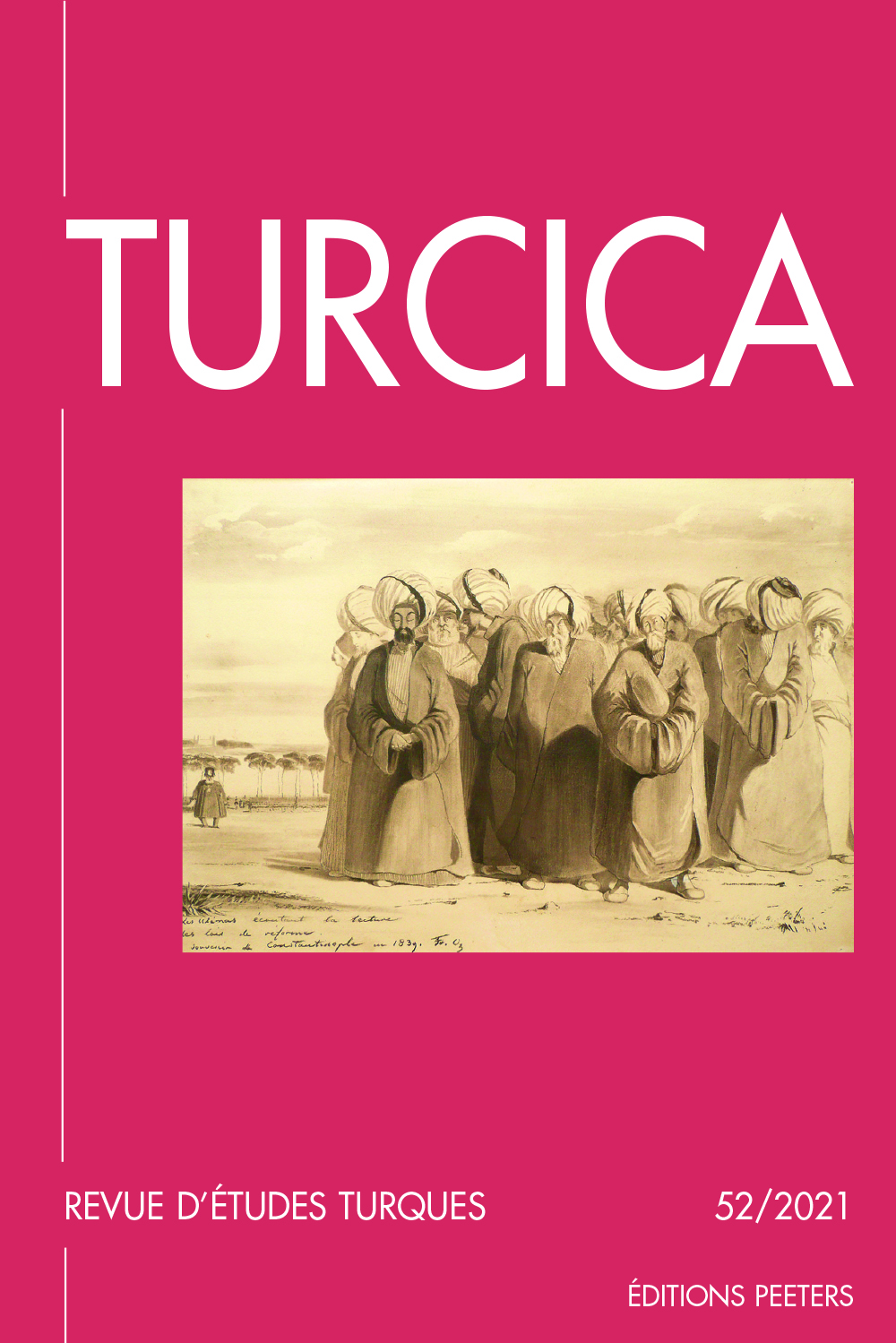 previous article in this issue previous article in this issue | next article in this issue  |

Preview first page |
Document Details : Title: Le haut clergé phanariote et les bulgares Subtitle: Oppresseur, prévaricateur ou bon pasteur? (1830-1860) Author(s): VOILLERY, Pierre Journal: Turcica Volume: 35 Date: 2003 Pages: 81-123 DOI: 10.2143/TURC.35.0.578736 Abstract : Le rôle joué par l'Église et le clergé est au centre de la réflexion sur la formation de la conscience nationale bulgare au XIXe siècle. L'analyse communément admise veut que le haut clergé — les Phanariotes — ait été parmi les principaux agents de l'asservissement de la population bulgare et que, pendant la période de la Renaissance bulgare, ils en aient été des opposants résolus. L'étude du comportement des titulaires des sièges où, entre 1830 et 1860, se produisirent des incidents opposant le haut clergé aux communautés bulgares montre, au contraire, des comportements contrastés et variables selon les époques, les lieux, les circonstances, allant de l'hostilité la plus nette à un appui convaincu et permet de dire que les milieux ecclésiastiques, le modèle religieux orthodoxe et la culture grecque phanariote ont joué un rôle très important dans la sauvegarde, la construction et l'émergence de l'identité nationale bulgare. Si une partie de ces pasteurs grecs adopte des positions résolument hostiles, une autre témoigne de plus d'attention à ses brebis bulgares. Dans un premier temps, c'est le souci pastoral qui anime bien souvent ces hommes conscients du fait que l'hérésie naît de l'ignorance. Dans un deuxième temps, et à mesure que les revendications deviennent plus précises, le pragmatisme et la prudence guident souvent leurs choix et leurs attitudes. The role played by the Great Church and the clergy is at the centre of the reflexion on Bulgarian national consciousness formation during the 19th century. The common analysis says that high clergy, the Phanariots, has been among the main responsible of bulgarian enslavement and, during the Bulgarian Revival, its most resolute opponents. The study of the behaviour of the bishops in the seats where, between 1830 and 1860, took place incidents between high clergy and Bulgarian communities shows, by the contrary, contrasted behaviours varying according to periods, places and circumstances, from the mot clear hostility to a resolute help and allow us to say that the ecclesiastic circles, orthodox religious model and greek phanariote culturehace played a very important part in the safegard, the making and the emerging of the Bulgarian national identity. If some of those shepherds stayed on definitively hostile positions, others show more attention to the sheep. In a first time, it is the pastoral preoccupation which drives these men who have in mind that heresy comes from ignorance. In a second time, as claims are becoming more precise, pragmatism and carefulness drive their choices and attitudes. |
 |


